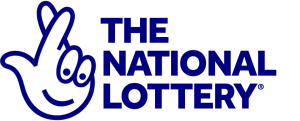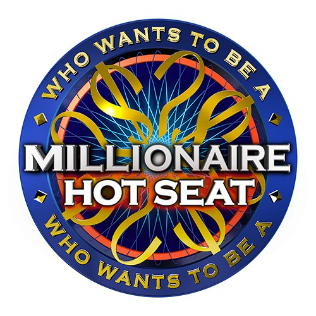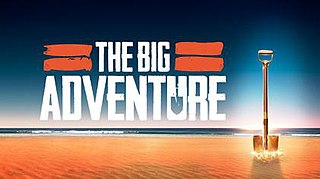Related Research Articles

A game show is a genre of broadcast viewing entertainment where contestants compete in a game for rewards. The shows are typically directed by a host, who explains the rules of the program as well as commentating and narrating where necessary. The history of the game shows dates back to the late 1930s when both radio and television game shows were broadcast. The genre became popular in the United States in the 1950s, becoming a regular feature of daytime television.
Who Wants to Be a Millionaire? is an international television game show franchise of British origin, created by David Briggs, Mike Whitehill and Steven Knight. In its format, currently owned and licensed by Sony Pictures Television, contestants tackle a series of multiple-choice questions to win large cash prizes in a format that twists on many game show genre conventions – only one contestant plays at a time, similar to radio quizzes; contestants are given the question before deciding whether to answer, and have no time limit to answer questions; and the amount offered increases as they tackle questions that become increasingly difficult. The maximum cash prize offered in most versions of the format is an aspirational value in local currency, such as £1 million in the UK or ₹75 million in India.
John Carpenter is an American game show contestant and Internal Revenue Service agent. He is the fourteenth highest-earning American game show contestant of all time. Carpenter is best known for becoming the first top-prize winner on the American version of Who Wants to Be a Millionaire, and the first ever top-prize winner in the entire Who Wants to Be a Millionaire? franchise. He held the record for the largest single win in United States game show history, until it was broken by Rahim Oberholtzer who won $1.12 million on another U.S. quiz show, Twenty One.
Bradford Gates Rutter is an American game show contestant, TV host, producer, and actor. With over $5.1 million in winnings, he is currently the second-highest-earning American game show contestant of all time, behind Ken Jennings, and still the highest-earning contestant on the U.S. syndicated game show Jeopardy!.

Deal or No Deal is an Australian game show which originally broadcast on the Seven Network from 13 July 2003 to 4 October 2013, hosted by Andrew O'Keefe. On 29 January 2024, a reboot series premiered on Network 10, hosted by Grant Denyer. It was the first international version of the game show, after the original Miljoenenjacht from the Netherlands. It was the first of the versions to use the Deal or No Deal name.

Who Wants to Be a Millionaire is an American television game show based on the format of the same-titled British program created by David Briggs, Steven Knight and Mike Whitehill and developed in the United States by Michael Davies. The show features a quiz competition with contestants attempting to win a top prize of $1,000,000 by answering a series of multiple-choice questions, usually of increasing difficulty. The program has endured as one of the longest-running and most successful international variants in the Who Wants to Be a Millionaire? franchise.

The Rich List is an American television game show on Fox, that aired its only episode on 1 November 2006 at 9 pm ET / PT. The show was then cancelled two days later by Fox after rating poorly in comparison to its slot competitors, Lost and CBS's Criminal Minds. It was produced by the British company 12 Yard, whose main creative team devised and produced Weakest Link and Dog Eat Dog. It featured competitors making lists of things, such as ABBA songs or Steven Spielberg movies, with the winning team being the one that could name the most. British television presenter Eamonn Holmes was the host.
A game show is a type of radio, television, or internet program in which contestants, television personalities or celebrities, sometimes as part of a team, play a game which involves answering trivia questions or solving puzzles, usually for prizes. Game shows are usually distinguishable from reality television competition shows, in which the competition consumes an entire season of episodes; in a game show, prizes can typically be won in a single match. Beginning with the first five-figure and six-figure game show jackpots in the mid-1950s, a succession of contestants on various quiz shows of the era each set records. Teddy Nadler of The $64,000 Challenge, the highest-scoring contestant of the 1950s era, was not surpassed until 1980, when Thom McKee won $312,700 on Tic-Tac-Dough. Between 1999 and 2001, during a brief boom in high-stakes game shows, the record was broken six times. Both the 1955–1958 and 1999–2001 eras of rapidly set and broken records were driven primarily by one-upmanship between the networks each trying to secure bragging rights and ratings by inflating their prize offerings, rather than the merits of the contestants themselves. American daytime television has historically had smaller prize budgets for game shows that air in that daypart.
The Weakest Link is an Australian game show based on the UK format, which aired from 5 February 2001 until 22 April 2002 and was originally broadcast on the Seven Network. Presented by Cornelia Frances, the show featured nine contestants competing for a potential prize of $100,000. Airing twice weekly in primetime, on Mondays and Thursdays or Fridays, it received modest ratings until its cancellation in April 2002. The show was produced in the Seven Network's South Melbourne headquarters.

Hoosier Millionaire is an American television lottery game show which aired on television stations in Indiana, Illinois and Kentucky from October 28, 1989, to November 19, 2005. At its peak, it was among the highest-rated lottery game shows in the United States and one of the highest-rated television programs in Indiana.

Who Wants to Be a Millionaire? is an Australian television game show which would offer a maximum cash prize of $1,000,000 for answering 15 successive multiple-choice questions of increasing difficulty. The show was based on and follows the same general format of the original version of the show from the United Kingdom, and is part of the international Who Wants to Be a Millionaire? franchise.

The National Lottery is the state-franchised national lottery established in 1994 in the United Kingdom. It is regulated by the Gambling Commission, and is operated by Allwyn Entertainment, who took over from Camelot Group on 1 February 2024.

Make Me a Millionaire is the second television game show of the California Lottery, having replaced The Big Spin on January 17, 2009. Originally contracted for a four-year run, the show was cancelled after eighteen months, with its final episode telecast on August 7, 2010. On July 9, five unaired episodes were uploaded to the California Lottery's official YouTube page.

Millionaire Hot Seat, also known as Hot Seat, was an Australian television quiz show. The show was a spin-off of Who Wants to Be a Millionaire? and began airing on the Nine Network on 20 April 2009. As with the original Australian version of the show, it was hosted by Eddie McGuire and followed a similar format.

Minute to Win It is an international game show franchise where contestants take part in a series of 60-second challenges that use objects that are commonly available around the house. The first version of Minute to Win It to air was the American primetime game show, which premiered on NBC on March 14, 2010, and ran till 2011 with host Guy Fieri. It was revived in 2013 on GSN with host Apolo Ohno. The second network to air a version of the concept was Brazil's SBT, on April 17, 2010. This series was called Nada Além de um Minuto and was played as part of the pre-existing program Programa Silvio Santos, hosted by Silvio Santos. Then on April 30, 2010, Germany's Sat.1 aired Die perfekte Minute and on June 22, 2010, Australia's Seven Network aired Minute to Win It. Currently over fifty countries worldwide have produced a version of Minute to Win It.

Minute to Win It is a Philippine television game show broadcast by ABS-CBN. The based on the American game show of the same title. It is hosted by Luis Manzano. It aired on the network's PrimeTanghali afternoon block and worldwide on TFC from January 14, 2013 to February 21, 2014 Contestants take part in a series of 60-second challenges that use objects that are commonly available around the house. Those who complete ten challenges would win the top prize of the show, PHP 3,000,000.

Million Dollar Minute is an Australian quiz show which aired on the Seven Network. It premiered on 16 September 2013. The show was originally hosted by Grant Denyer, and later by Simon Reeve, and aired at 5:30 pm on weeknights. The show was cancelled in September 2015 and was replaced by The Chase Australia in its timeslot. Repeats are currently shown on 7TWO in place of Home and Away's Early Years on Hiatus.

The Big Adventure is an Australian reality television series that premiered on the Seven Network on 19 October 2014, and is hosted by Jason Dundas.
Monopoly Millionaires' Club is an American lottery game show that debuted in syndication on March 28, 2015. Hosted by stand-up comedian/actor Billy Gardell, best known for his role as Chicago police officer Mike Biggs on the sitcom Mike & Molly, it was initially based on an unsuccessful drawing game of the same name that was coordinated by the Multi-State Lottery Association (MUSL), using the Monopoly board game brand under license from Hasbro. The lottery game returned, in scratch-off form, in the spring of 2015.

The Chase Australia is an Australian television quiz show based on the British program of the same name. It is broadcast on the Seven Network and premiered on 14 September 2015. Four contestants play against an opponent, known as the "chaser", who plays for the bank. The show was originally hosted by Andrew O'Keefe until July 2021, when he was replaced by Larry Emdur. The series began with Brydon Coverdale, Anne Hegerty, Matt Parkinson and Issa Schultz as chasers, with Mark Labbett joining in 2016. Shaun Wallace appeared as a guest chaser in 2018, and Cheryl Toh has appeared as a chaser since 2019. Mara Lejins joined as a chaser in 2022, and David Poltorak joined in 2024. Brandon Blackwell also appeared as a guest in 2024.
References
- 1 2 3 "Million Dollar Minute winner Andrew Skarbek becomes first millionaire". Sydney Morning Herald. Retrieved 27 March 2015.
- ↑ Rao, Shoba (2015-03-27). "Channel Seven's quiz show Million Dollar Minute gets its first millionaire, Andrew Skarbek". News.com.au. Retrieved 2024-08-20. (via archive.org)